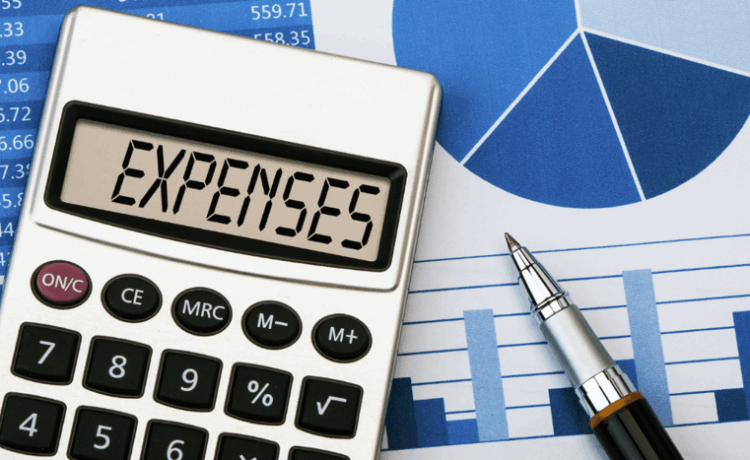When tax season rolls around, most business owners may be scrambling to pull together receipts or records for tax-deductible expenses. However, many may miss out on lesser-known business expense deductions that could significantly reduce their taxable income.
These hidden costs can potentially add up to thousands in tax savings.
Knowing what qualifies as a deductible expense isn’t just helpful; it’s financially savvy for small business owners.
How SMEs Can Benefit From Business Expense Deductions
Business expense deductions help lower your taxable income.
The more eligible expenses you can claim, the less you’ll pay at tax time.
Even if a single deduction seems minor, claiming several throughout the year can lead to significant savings.
For brokers, understanding deductions can help you provide better service to clients. And if you’re self-employed, these tips might apply to your business, too.
Business Expense Deductions Not To Miss
While the basics, like stationery and rent, are usually claimed, many business owners can miss out on the deductions that are just as valid below:
1. Bad Debts
Unpaid invoices are an unfortunate reality for many businesses. If small business owners already declared the income and have made genuine efforts to collect payment, but the customer still hasn’t paid, they may be able to write off the amount as a bad debt deduction.
The key is ensuring that the debt is written off during the same financial year and maintaining clear records showing it was unrecoverable.
These business expense deductions can be especially helpful for businesses with regular client billing or account terms.
2. Instant Asset Write-Off (IAWO)
The Instant Asset Write-Off allows eligible businesses to immediately deduct the cost of qualifying assets rather than depreciating them over time.
This deduction can apply to computers, tools, and equipment used in the business’s day-to-day operations.
Timing is also crucial since assets must be installed and ready for use within the eligible time frame to qualify.
3. Running Expenses (Home-Based Business Or Remote Work)
If you run your business from home or work remotely, you may be able to claim running expenses such as:
- Electricity and gas
- Depreciation on home office furniture
- Internet and mobile phone bills
You can use the fixed-rate method or claim actual expenses, but good record-keeping is essential.
The fixed-rate method is simpler, but the actual cost method may offer higher deductions.
4. Interest On Business Loans
You can claim the interest (but not the principal) on any loan taken out to fund business activities. This includes:
- Equipment Finance
- Overdrafts
- Vehicle loans
- Business credit cards (if used for business only)
If you’re a broker helping clients secure additional financing, reminding them about this deduction can strengthen your advisory role.
5. Digital Marketing And Website Hosting Fees
Online marketing is a key business tool, but many business owners may forget that associated costs can be claimed as business expense deductions.
- Google or Facebook ads
- Email marketing platforms
- Website domain and hosting
- SEO or marketing tools
As long as the expenses are directly related to earning your business income, they’re typically considered deductible.
SME owners may want to keep track of monthly subscriptions and campaign budgets to help ensure nothing slips through the cracks.
6. Professional Development and Upskilling
Any education or training small business owners or their employees undertake that’s directly related to the current business activities may be tax-deductible.
- Online certifications
- Industry conferences
- Continuing Professional Development (CPD)
Costs such as tuition fees, travel related to the training, and materials may all potentially be claimable.
However, the course must relate to the existing business, not a new profession or future opportunity.
7. Travel Expenses (Meals And Accommodation)
Travel undertaken for business purposes, such as visiting clients, attending conferences, or conducting off-site meetings, can all qualify as business expense deductions.
You may be able to claim the following expenses during tax time.
- Airfare
- Accommodation
- Meals (for overnight trips)
- Taxi or rideshare fares
These deductions apply only if the travel is directly related to your business, and personal travel expenses must be excluded.
Proper documentation, such as travel diaries and itemised receipts, helps support your claim.
You can’t claim deductions on travel from home to your usual workplace. And if the trip includes a personal element, only the business-related portion is deductible.
8. Repairs, Maintenance, And Replacements
Maintaining your business’s assets is essential, and the associated costs can often be claimed.
You can deduct costs related to keeping business assets in good working order, including:
- Vehicle servicing
- Equipment repairs
- Replacement of worn tools
The ATO makes a clear distinction between repairs and improvements. Only the former are immediately deductible.
If you’re fixing something to restore it to working order, it likely qualifies. However, upgrading it may be considered a capital expense.
9. Protective Clothing And Laundry Costs
The associated costs are deductible if your work involves health or safety risks and requires protective clothing. Potentially eligible items include:
- Steel-capped boots
- Safety vests
- Goggles or hard hats
- Industry-specific protective wear
The list also includes industry-specific workwear, such as branded uniforms or high-visibility vests. However, everyday clothing is not deductible even if worn at work.
You can also claim the cost of cleaning these items, provided you wear them solely for work.
This is particularly relevant in industries like construction, healthcare, and manufacturing, where protective gear is essential.
To claim laundry costs as business expense deductions, you’ll need to use a reasonable method to calculate the frequency and cost, especially if you don’t have exact receipts.
How to Claim & Document Deductions
To claim deductions properly, business owners will need to keep and present accurate records.
The ATO requires businesses to keep proof of their expenses for at least five years.
You should keep:
- Tax invoices
- Bank statements
- Mileage and travel logs
- Diary entries (for mixed-use or estimated expenses)
Using cloud accounting tools like Hnry, Xero, or MYOB can make record-keeping easier.
You can also photograph paper receipts and store them in folders by financial year.
Having proper documentation may also be helpful if you’re ever audited, protecting your deductions and business.
Conclusion
Overlooking legitimate deductions means paying more tax than necessary.
For brokers, understanding these hidden opportunities is essential for offering informed guidance to your clients.
So, before tax season kicks off, go beyond the basics. Review the businesses’ expenses using the 9 categories above.
Check the ATO for the latest thresholds and record-keeping rules.
And if you’re unsure, talk to a registered tax agent, because good advice can save more than it costs.









